The Wisconsin Legislature stands adjourned following the Senate’s final planned floor day on March 8. The Assembly adjourned two weeks earlier after its final votes on February 23 and 24. Barring any unusual circumstances, the Legislature will not convene again until the next legislative session begins in January 2023.
Also on March 8, Republican leaders in the Senate and Assembly gaveled in and then immediately adjourned a special session called by Gov. Tony Evers (D). The governor announced his call for a special session at his February State of the State address. Gov. Evers called on the Legislature to consider his proposal to spend some of the $3.8 billion surplus the state is projected to have at the end of the 2021-23 fiscal biennium. A press release from the governor criticized legislative Republicans for rejecting his plan to direct $1.7 billion of the projected surplus towards tax relief and education spending.
Senate Floor Calendar, March 8
The Senate’s floor calendar included nearly 150 items. First, the Senate voted unanimously to confirm 62 of Gov. Evers’ appointments to various state boards and commissions, including all nine of the governor’s initial appointments to the recently created Physician Assistant Affiliated Credentialing Board. The Senate passed 64 bills and two resolutions. The Senate also considered eight items from the Senate that were subsequently amended by the Assembly. Notably, the Senate agreed to the Assembly’s changes to two bills:
- Senate Bill (SB) 392, which would establish a certification program for expanded function dental auxiliaries (EFDAs). Licensed EFDAs would be able to perform certain tasks related to dentistry and dental hygiene. Supporters argue that the bill will lower the cost of dental care and promote access to dental care in underserved areas.
- SB 394, which creates an additional level of nursing licensure called an advanced practice registered nurse (APRN) with four recognized roles. The bill is supported by nursing trade groups, health insurers, and associations representing the interests of the elderly. Both the Senate and Assembly added amendments to the bill regarding the extent to which certain APRNs early in their practice will need to maintain a collaborative relationship with a physician.
Democratic members of the Senate introduced motions to withdraw from committee and take up two bills containing some of their party’s key policy priorities. SB 361, colloquially known as the “CLEAR Act,” includes a variety of provisions to regulate PFAS (per- and polyfluoroalkyl substances) and to fund PFAS testing, monitoring, and disposal initiatives. SB 956 is the surplus spending proposal that Gov. Evers called for during his State of the State Address. Neither bill had received a public hearing or further committee action before the March 8 floor session; each motion was rejected on a party line vote of 11-19.
Finally, the Senate referred six bills on its calendar back to the Committee on Senate Organization, effectively killing the bills without a final vote.
